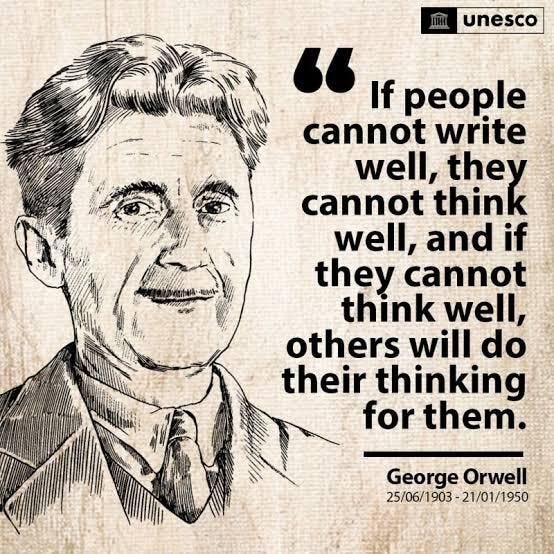Translated from https://x.com/Galadriell__/status/1900580031723696353
"The gradual disappearance of tenses (subjunctive, simple past, imperfect, compound forms of the future, past participle, etc.) gives rise to present-tense thinking, limited to the moment, incapable of projecting into time.
The widespread use of the informal "tu" (in French), the disappearance of capital letters and punctuation are all mortal blows to the subtlety of expression.
Removing the word "mademoiselle" not only means abandoning the aesthetics of a word, but also promoting the idea that there is nothing between a little girl and a woman.
Fewer words and fewer conjugated verbs means less ability to express emotions and less opportunity to develop a thought.
Studies have shown that part of the violence in the public and private spheres stems directly from the inability to put emotions into words.
Without words to construct an argument, the complex thought dear to Edgar Morin is hindered, rendered impossible.
The poorer the language, the less thought exists. History is rich in examples, and numerous writings, from George Orwell in 1984 to Ray Bradbury in Fahrenheit 451, have recounted how dictatorships of all persuasions hampered thought by reducing and distorting the number and meaning of words.
There is no critical thinking without thought. And there is no thought without words.
How can one construct hypothetico-deductive thought without mastery of the conditional? How can one envision the future without conjugation in the future tense? How can one grasp temporality, a succession of elements in time, whether past or future, as well as their relative duration, without a language that differentiates between what could have been, what has been, what is, what could happen, and what will be after what could happen has happened? If a rallying cry were to be heard today, it would be this one addressed to parents and teachers: get your children, your pupils, your students to speak, read, and write.
Teach and practice language in its most varied forms, even if it seems complicated, especially if it is complicated. Because freedom lies in this effort. Those who constantly explain that spelling must be simplified, the language purged of its "flaws," and genders, tenses, nuances, and everything that creates complexity must be abolished are the gravediggers of the human spirit. There is no freedom without demands. There is no beauty without the thought of beauty."
— Christophe Clavé






I'm sorry, but in this one observation, Orwell was flat-out mistaken. I've learned there are many sorts of thinkers, including those who use no sort of language to think. I am one of those. Over time I've adopted language and writing, but it has absolutely not affected my ability to think and reason, in fact, it sometimes makes reasoning more difficult. It also slows me down. Disagree if you wish, but I was flabbergasted at twenty to learn there are people who think almost entirely using language. Without it, they would seem to be idiots, so of course, they invent language.